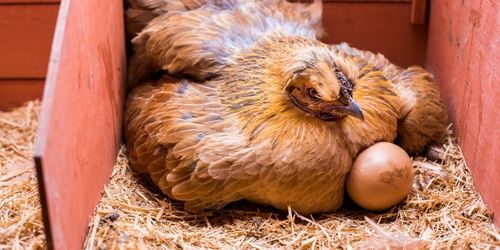Some of the links on our website are affiliate. By making a purchace via our links, you help us create new content and support animal shelters and funds
Chicken lifespan

Photo by Egor Myznik on Unsplash
Chickens are the most common farm birds. They are also quickly becoming popular pets, as backyard hens can provide a steady supply of eggs. However, before building a coop and buying chickens, you may want to know how long they tend to live.
Chicken lifespan
Wild chicken breeds have an average lifespan of three to seven years. Domesticated hens and roosters live an average of five to ten years.
The breed of domesticated chicken has the largest impact on its lifespan. Some of the most popular chicken breeds include:
- Leghorn chickens with a life expectancy of 4 to 6 years;
- Silkie chickens with a life expectancy of 7 to 9 years;
- Australorp chickens with a life expectancy of 6 to 10 years;
- Wyandotte chickens with a life expectancy of 6 to 12 years;
- Orpington chickens with a life expectancy of 8 to 10 years.
Find out how long chickens live in human years.
Leghorn chickens, bred as production animals for egg-laying, have a shorter lifespan than most domesticated chicken breeds. Wyandotte chickens manage stress better than other breeds and lay fewer eggs, which can contribute to a longer lifespan.
Other factors that impact the lifespan include the chicken’s living conditions and diet. Chickens need shelter from severe weather and predators. They may also require special care for different stages of their life cycle.
What affects chicken life expectancy?
The lifespan of a chicken depends on many factors, including the breed, living environment, and genetics. The following issues play the greatest role in determining the life expectancy of a chicken:
Breed
Some chicken breeds have shorter lifespans compared to others. Plymouth Rock chickens live an average of 8 to 10 years while Leghorn chickens only live 4 to 6 years.
Genetics
Breeders need to maintain a genetically diverse stock to decrease the risk of interbreeding, which can result in chickens with shorter lifespans.
Predators
Attacks from other animals are one of the main reasons why chickens have shorter life expectancies in the wild.
Diseases and parasites
Modern chicken breeds are not as susceptible to diseases and parasites. However, certain illnesses can still cause serious health problems. For example, mites can cause anemia while worms can cause life-threatening health complications. Inspecting your flock at least once a month can help detect these issues early.
Housing and diet
Poor living conditions and a poor diet can shorten the life of a chicken. A cramped living space can create unnecessary stress and increase the risk of respiratory issues.
Veterinary care
Several decades ago, the average lifespan for a chicken was just a few years. Advances in medicine and breeding have helped extend the lives of chickens, but you still need to take chickens to the vet occasionally. Modern veterinary care allows for better treatments for everything from minor injuries to major medical issues.
How to Extend Your Chicken’s Lifespan?
If you want to extend the lifespan of your chickens, make sure that you provide adequate shelter, food, and care. Here are several advice:
1. Provide constant access to clean water. Water is the most essential part of a chicken’s overall health, as they need to stay hydrated. A full-grown hen can drink a pint of water each day. Add a tablespoon of apple cider vinegar to each gallon of drinking water to remove contaminants and supply your chickens with extra vitamins.
2. Allow your chickens to roam. Free-range chickens are often healthier compared to chickens raised in small coops. Providing chickens with space to roam allows them to supplement their diets with more bugs and seeds.
3. Maintain good air quality inside the coop. Poor ventilation can increase the humidity in the coop, which increases the risk of ammonia buildup and air contamination. Keeping the coop clean and well-ventilated should help chickens live their fullest lives.
4. Give your chickens plenty of space. Providing chickens with lots of outdoor space and a large coop can prevent unnecessary stress due to overcrowding. Chickens need room to wander around and stretch their wings.
5. Perform monthly health checkups. Chickens may develop occasional health issues, which is why you should perform a monthly checkup. Detecting a problem early decreases the risk of it causing permanent harm and shortening your chicken’s lifespan.
6. Take your chickens to the vet for injuries and illnesses. Unless you have experience raising poultry, visit the vet for any serious injuries or illnesses. If you detect any issues during the monthly health checkups, you may want to have a vet examine your chickens.
7. Protect chickens from other pets and children. Pets and children may taunt or intimidate chickens, which is another cause of unnecessary stress. Dogs and other large animals may also hurt or kill chickens.
